Every Jimmy Eat World album ranked from worst to best
Emo kingpins Jimmy Eat World have a stellar catalogue, but to spare your tears, we've done the hard work of ranking them from worst to best for you
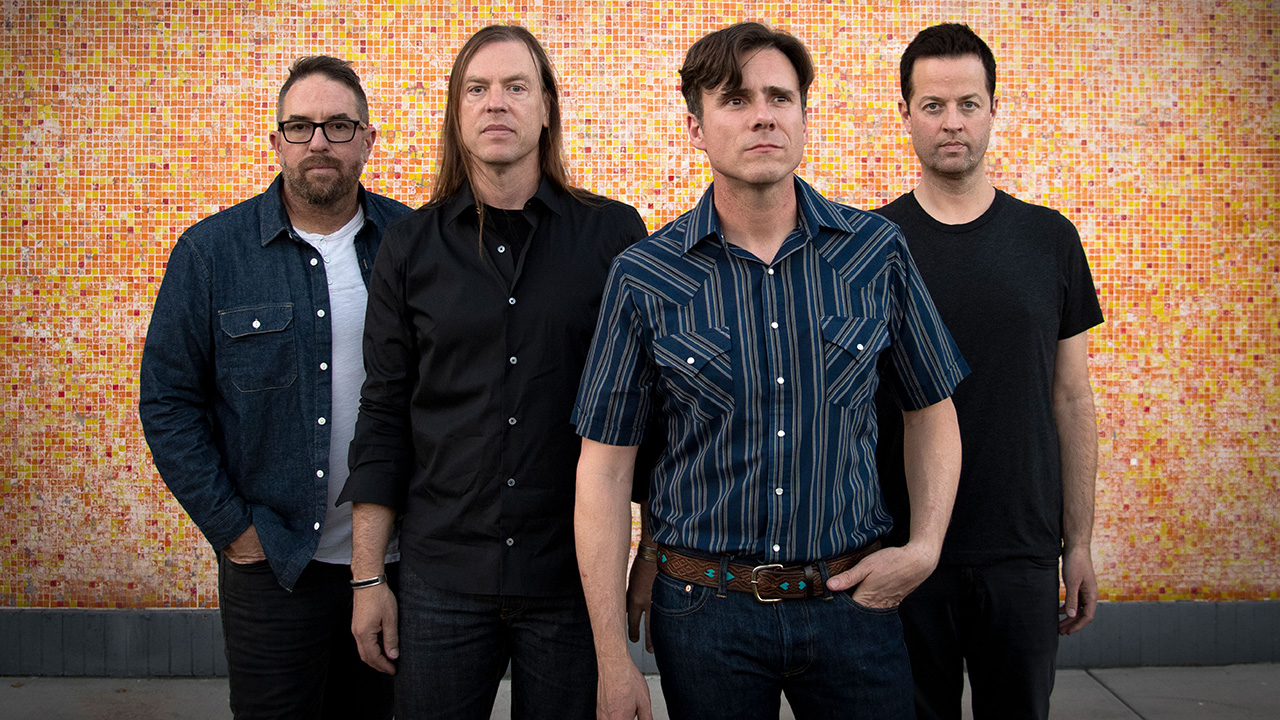
Select the newsletters you’d like to receive. Then, add your email to sign up.
You are now subscribed
Your newsletter sign-up was successful
Want to add more newsletters?

Every Friday
Louder
Louder’s weekly newsletter is jam-packed with the team’s personal highlights from the last seven days, including features, breaking news, reviews and tons of juicy exclusives from the world of alternative music.

Every Friday
Classic Rock
The Classic Rock newsletter is an essential read for the discerning rock fan. Every week we bring you the news, reviews and the very best features and interviews from our extensive archive. Written by rock fans for rock fans.

Every Friday
Metal Hammer
For the last four decades Metal Hammer has been the world’s greatest metal magazine. Created by metalheads for metalheads, ‘Hammer takes you behind the scenes, closer to the action, and nearer to the bands that you love the most.

Every Friday
Prog
The Prog newsletter brings you the very best of Prog Magazine and our website, every Friday. We'll deliver you the very latest news from the Prog universe, informative features and archive material from Prog’s impressive vault.
From flying under the radar during the '90s to going platinum as part of the emo boom of the early 2000s, Arizona's Jimmy Eat World have a knack for quietly and smartly reinventing themselves to stay relevant.
We rank their long-players from the maybe-nots to the must-haves.

10. Jimmy Eat World (1994)
You can trust Louder
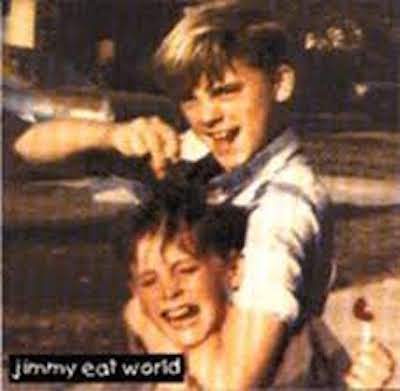
Tricky to track down anywhere other than on YouTube, Jimmy Eat World's 1994 debut appears to have been quietly moved to the very back of their catalogue. It's not difficult to see why. This scratchy pop-punk is perfectly listenable, but gives no indication of how the quartet's music would evolve as they found their own distinctive voice. Usery squeezing the brakes and slowing its tempo for a grand total about 60 seconds is perhaps the best early indication of where they were headed.
9. Invented (2010)
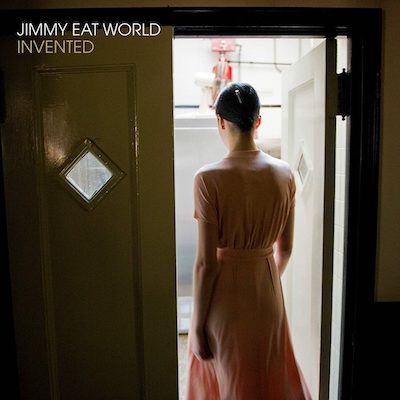
One of those tricky mid-era albums that shows an artist at a transitional point in their career, Invented is the sound of Jimmy Eat World swimming deeper in the waters of radio-friendly rock. The decision to work once again with long-time producer Mark Trombino doesn't help most of these songs sounding strangely flat, though, with even the album's touted "big rock" moments, the singles My Best Theory and Coffee And Cigarettes, sounding polite rather than urgent.
8. Damage (2013)
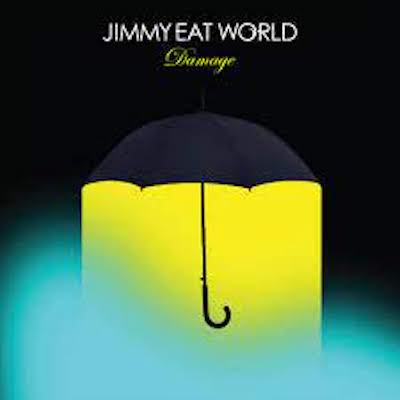
The follow-up to Invented, Damage managed to combine a bit more of the bite and invention of the band's late-'90s output with their apparent desire to settle into a groove. The combination of electric and acoustic guitars means that several songs never really shake free of sounding like easy listening, but No, Never and single I Will Steal You Back come laced with the sugar-coated spikiness that frontman Jim Adkins has a knack of sprinkling into their all their best tracks.
7. Surviving (2019)
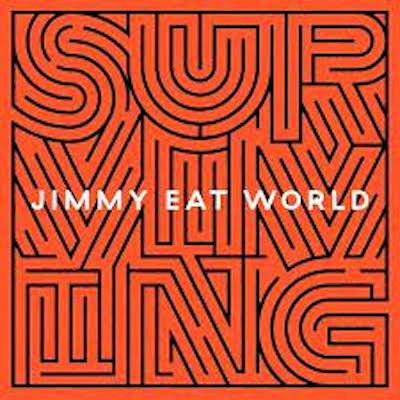
Jimmy Eat World's latest studio effort, their tenth, is perhaps their most assured foray into Foo Fighters-esque arena rock. They make big riffs coated in high-gloss production sound more urgent than lesser bands could, even if many of these tracks sadly lack the hooks of their most memorable output. Surviving is also undone slightly by a tendency to veer back to throwback pop and power ballads, making it difficult to maintain its momentum.
6. Static Prevails (1996)
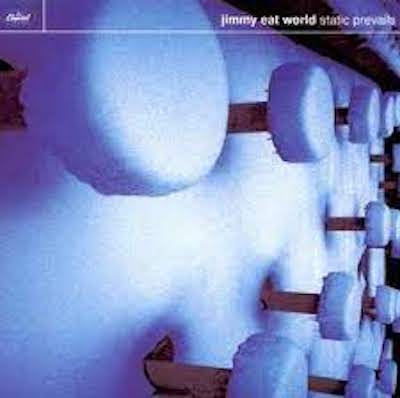
The bridge between Jimmy Eat World's pop-punk beginnings and their classic albums, Static Prevails features plenty of potential and more than a few songs that stand the test of time. The throat-stripping vocals and stomping tempos of Call It In The Air and Digits sit alongside the more considered Claire and Caveman to create something uneven but distinct, which would unintentionally form part of the roadmap for emo's rite of passage through the late '90s.
5. Chase This Light (2007)
Perhaps the least-loved of the peak-era Jimmy Eat World albums, Chase This Light still manages to brim with the energy that would become intermittent on several of the albums that followed it. Opening salvos don't come much more adrenalised than Big Casino and Let It Happen, and while some of the songs might wobble with an unfavourable "Ooh, girl" energy, when its best tracks take flight this is aural aeronautics.
4. Integrity Blues (2016)
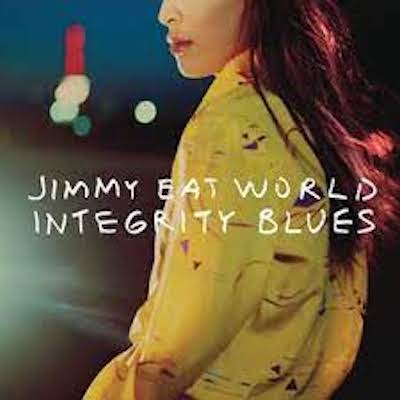
Another later-era Jimmy Eat World album that's unapologetically at the pop-end of the pop-rock spectrum, Integrity Blues won't be for everyone, featuring, as it does, a set of studied, evocative songs that slow their tempos for maximum impact. It means that the low-end buzz of Pretty Grids and the down-tuned swarm of guitars on both Pass The Baby and Get Back are delivered with the same unhurried precision as the album's prettier moments.
3. Futures (2004)
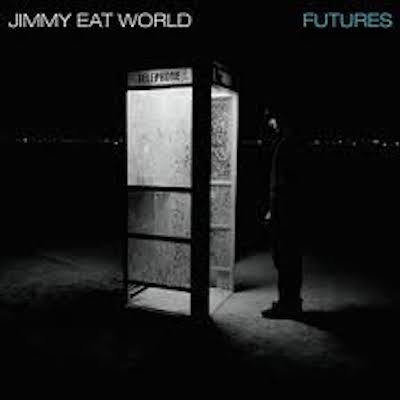
It could've been a typically 'difficult' follow-up to the band's biggest commercial hit, but Futures found a way to keep emo accessible, albeit roughed up with few more angular edges this time around. It makes for an at-times claustrophobic listen, but one honeyed by Adkins' vocal delivery, even when he barrels through an addict's point of view on the fantastic Pain.
The stripped-down, direct approach adopted throughout Futures eliminates distractions for the listener and band alike, even when during seven-minute album closer 23, which recalls some of their earlier, more experimental work.
2. Clarity (1999)
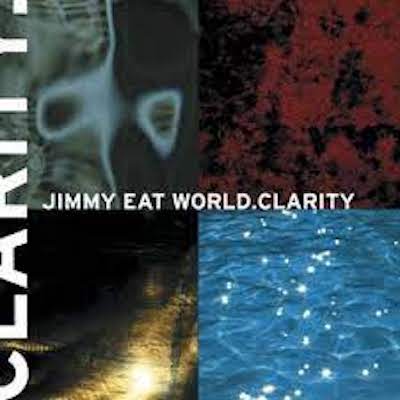
It takes a show of intent and integrity to quietly abandon the tropes of the scene you're from and the elements of your sound that make you most accessible, but Jimmy Eat World did both in a moment on Clarity. Initially regarded as a commercial misstep that would eventually get them dropped, the album has rightly been reappraised as a modern emo classic.
It's hard to know what Warped Tour crowds must've made of Jim Adkins centre stage as the band's main vocalist to croon over the tinkling, harmonious album opener Table For Glasses and the similarly artful Lucky Denver Mint, but these days Clarity is held dear by fans and the band alike, being selected as one of three albums JEW performed in its entirety for their Phoenix Sessions on YouTube last year.
1. Bleed American (2001)
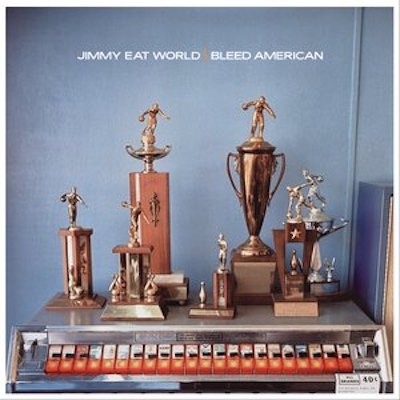
The timing of its title was deeply unfortunate - a few months after its release Bleed American was hastily redubbed as a(nother) self-titled Jimmy Eat World album in response to the terror attacks of 9/11 - but pretty much everything else about this release exceeded expectations.
Recorded using the band's own money with garlanded producer Mark Trombino working for no up-front payment, Bleed American fired Jimmy Eat World back into the collective consciousness, as they struck gold (well, platinum) by striking a balance between raucous, post-grunge emo (Bleed American, Get It Faster), catchy pop-rock (The Middle, Authority Song) and acoustic ballads (Here You Me, My Sundown).
This combination of melded together to form a perfect collection of love songs for rock fans, established JEW as an overnight success eight years into their career, and set them on course to be both cult heroes and critical darlings for another two decades. Only the naysayers were left teary-eyed after this one.
The latest news, features and interviews direct to your inbox, from the global home of alternative music.
A long-time contributor to Kerrang! and feature writer for Noisey, Fightland and more, punk rock lifer Alistair Lawrence wrote the acclaimed Abbey Road: The Best Studio in the World in 2012. Hopefully Ridley Scott will forgive him for accidentally blanking him in one of the studio’s hallways, should they ever meet again.
